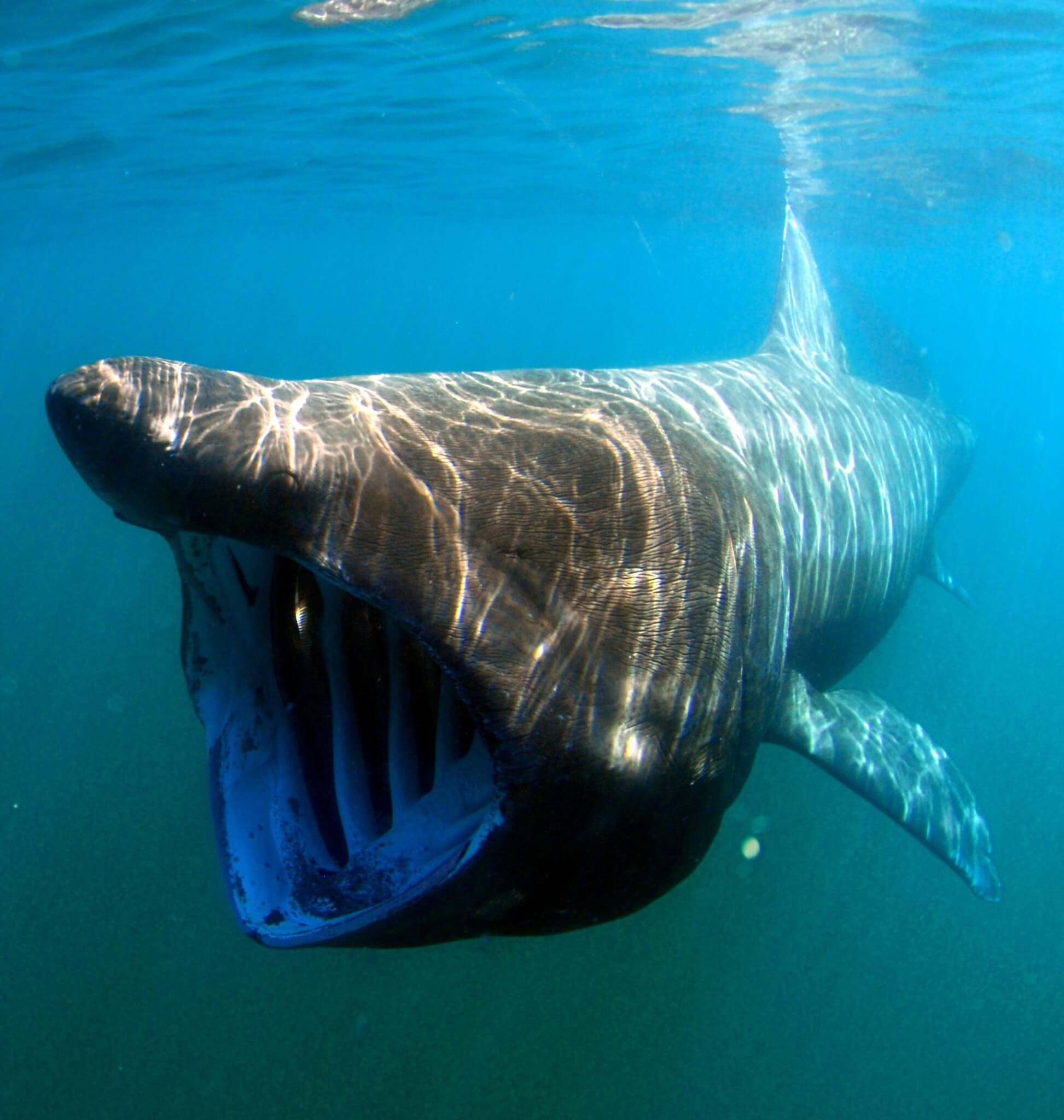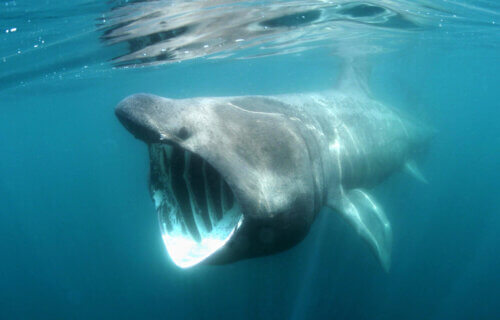DUBLIN, Ireland — One type of shark has thrown marine scientists a curveball. Contrary to the typical behavior of about 99.9 percent of fish and shark species, basking sharks are not “cold-blooded.” Researchers from Trinity College Dublin found that basking sharks maintain warmer core body temperatures compared to the surrounding water.
Predatory swimmers like great white sharks, mako sharks, and tuna, known as “regional endotherms,” have previously been identified for this ability to keep warm. This trait was thought to be primarily linked to their athletic and predatory natures, aiding them in their roles as top marine predators. However, the recent findings challenge this notion.
“The basking shark is a shining example of how little we know about shark species in general,” says Haley Dolton, the study’s lead author and PhD candidate at Trinity’s School of Natural Sciences, in a statement. “That we still have lots to uncover about the second biggest fish in the world – such a huge, charismatic animal that most people would recognize it – just highlights the challenge facing researchers to gather what they can about species to aid in effective conservation strategies.”
“Regional endotherms are thought to use more energy, and possibly respond differently to ocean warming than other fish species,” notes Dolton. “So lots more work will need to be done to work out how these new findings regarding an endangered species might change previous assumptions about their metabolism or potential distribution shifts during our climate crisis, which is something marine biologists are focusing on as our planet and its seas continue to warm.”

Through dissections of dead basking sharks and the development of a new low-impact tagging method, the researchers observed that these sharks possess muscular features akin to their predatory counterparts, suggesting a regional endothermic nature. The unique tagging method allowed researchers to record body temperatures of swimming basking sharks, revealing that their muscle temperatures consistently exceeded surrounding water temperatures.
“These results cast an interesting new light on our perception of form versus function in fishes because until now we thought regional endothermy was only found in apex predatory species living at high positions in the marine food web,” says Nicholas Payne, the study’s senior author and assistant professor at Trinity’s School of Natural Sciences.

The study was published in the journal Inter-Research Science Publisher.

Wouldn’t be a libtard imbelic article without the big reference to “climate change” — the biggest hoax and economic fraud in human history.